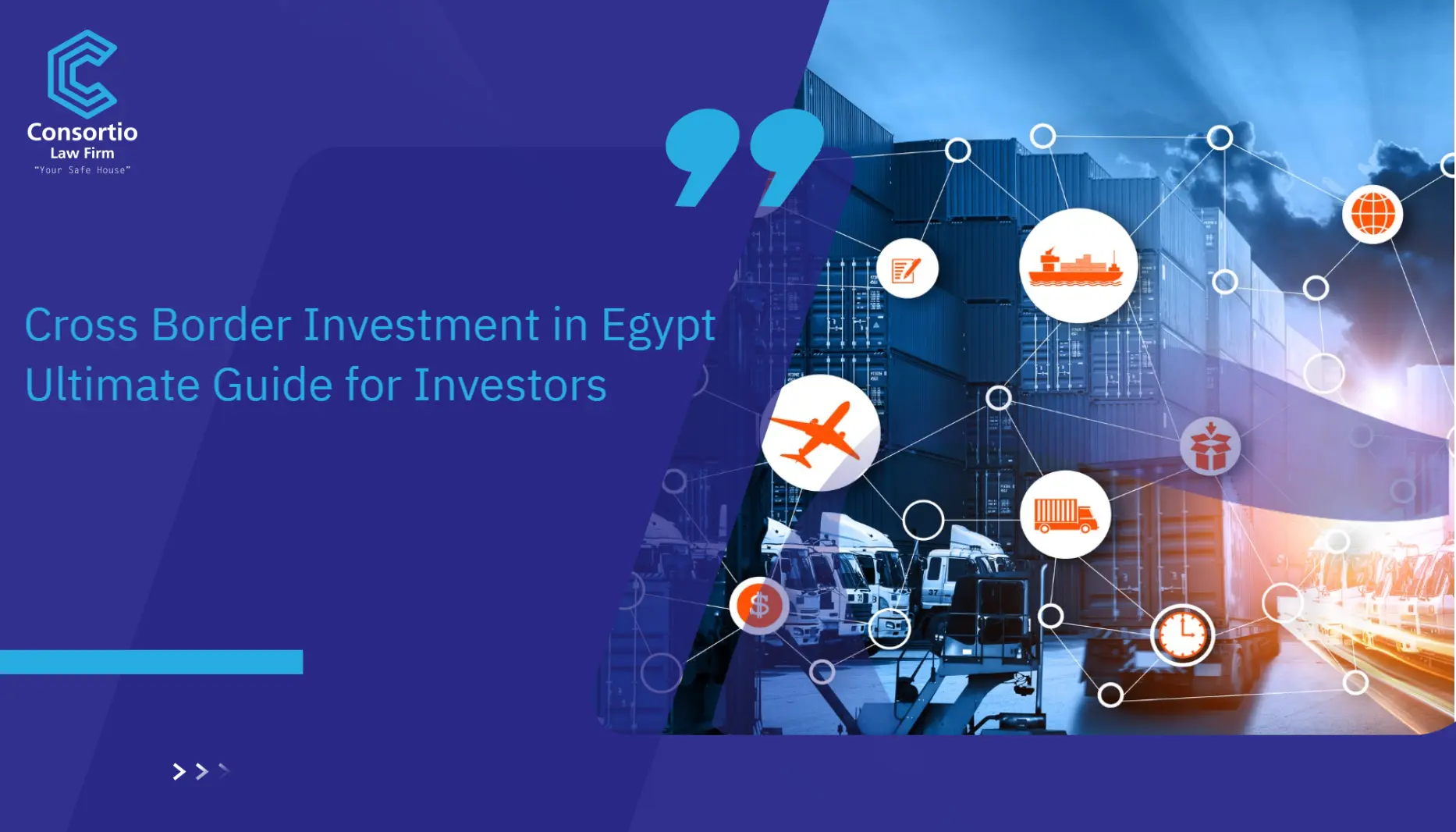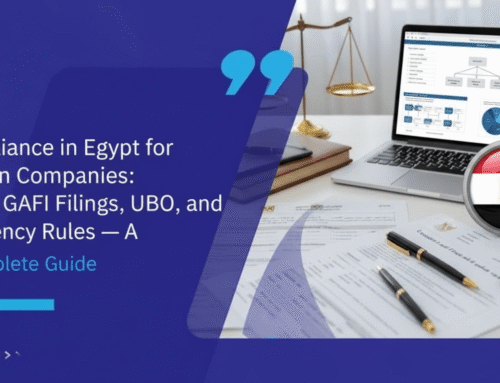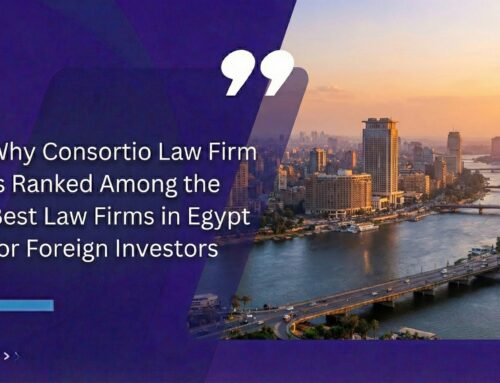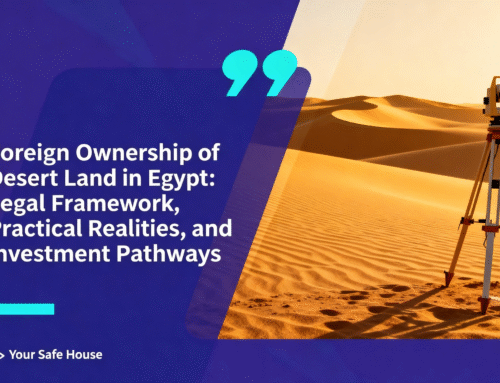Today, the world is no longer limited by borders, and neither should your business be. This is why Cross border investment in Egypt isn’t just about entering a new market, it’s a powerful leap into the future of global growth. As global capital flows seek stability, scale, and growth, Egypt stands out as a golden gateway to Africa, the Middle East and emerging global markets, offering global investors a rare combination of opportunity, resilience and rapid growth.
Why Egypt Is Becoming a Hotspot for Foreign Investors?
In recent years, Egypt has emerged as one of the most attractive investment destinations in the Middle East and Africa. Here’s the key reasons behind Egypt’s growing appeal to foreign investors:
- Strategic Location: Gateway between Africa, Asia, and Europe; control of the Suez Canal.
- Economic Reforms: Improved investment laws, tax incentives, and faster licensing.
- Mega Projects: New Administrative Capital, Ras El Hekma, infrastructure expansions.
- Suez Canal Economic Zone: Industrial hub with global logistics links.
- Sector Diversity: Growth in tourism, energy, real estate, agriculture, and manufacturing.
- Competitive Labor: Young, affordable, and increasingly skilled workforce.
- Currency Devaluation: Makes local assets cheaper and exports more competitive.
- Political Stability: Relative calm compared to regional neighbors.
Legal and Regulatory Framework for Cross Border Investment in Egypt
Cross-border investment in Egypt is governed by a modern and structured legal system designed to promote transparency, ease of entry, and investor protection. Below is a breakdown of the core components:
Key laws governing Cross-Border Investment in Egypt include:
Investment Law No. 72 of 2017
This is the principal legislation regulating both domestic and foreign investment in Egypt. Key features include:
- Equal treatment for foreign and local investors.
- Guarantees against nationalization and arbitrary expropriation.
- Repatriation of profits and capital is permitted.
- Provides tax and customs incentives for strategic sectors and projects.
Companies Law No. 159 of 1981 (as amended)
Governs the formation and operation of companies in Egypt:
- Foreign investors can own 100% of a company in most sectors.
- Permits different legal forms (e.g., LLC, Joint Stock Company, Branch Office).
Capital Market Law No. 95 of 1992
Governs investment in financial securities in Egypt and regulates foreign participation in stock exchanges and securities transactions.
Special Economic Zones Law No. 83 of 2002
Provides benefits to companies operating in free zones, including:
- Exemption from customs and taxes.
- Simplified import/export procedures.
- Full foreign ownership allowed.
Banking Law No. 194 of 2020
Regulates foreign ownership in banks and requires approval from the Central Bank of Egypt (CBE) for significant acquisitions or new banking licenses.
The legal and regulatory framework for cross-border investment in Egypt is designed to attract foreign direct investment (FDI) while ensuring compliance with national interests and international obligations.
How to Start a Cross Border Investment in Egypt?
Starting a cross-border investment in Egypt involves navigating legal, regulatory and practical steps. Below is a structured roadmap to guide foreign investors through the process:
- Define your investment strategy and select the target sector.
- Choose the appropriate legal structure (LLC, branch, free zone entity, etc.).
- Pick a location: mainland, free zone, or special economic zone.
- Reserve your company name and prepare incorporation documents.
- Obtain necessary approvals from GAFI and other regulatory bodies.
- Register the company with GAFI, Commercial Registry, and Tax Authority.
- Apply for industry-specific licenses and permits.
- Transfer capital legally and comply with Central Bank regulations.
- Register for tax, VAT, and social insurance for employees.
- Hire staff following Egyptian labor laws and secure work permits for foreigners.
- Plan for repatriation of profits and future exit strategies.
- Work with local legal and financial advisors to ensure smooth compliance.
The Role of Top-tier Lawyer in Cross Border Investment in Egypt
When engaging in Cross Border Investment in Egypt, navigating the legal landscape can be complex due to the country’s unique regulatory environment.
This is where expert lawyers, as in “Consortio Law Firm”, become indispensable in this process, offering expert guidance to ensure that investments comply with local laws, mitigate risks and operate efficiently.
Here’s what they can assist with:
- Conducts thorough legal due diligence to identify risks.
- Advises on the optimal investment structure and compliance.
- Drafts and negotiates contracts and agreements.
- Assists in obtaining licenses and government approvals.
- Navigates sector-specific regulations and ownership restrictions.
- Provides guidance on tax planning and profit repatriation.
- Represents clients in dispute resolution, including arbitration and litigation.
- Ensures protection of investor rights and minimizes legal risks.
- Facilitates faster and smoother investment registration and setup.
- Offers strategic advice throughout the investment lifecycle.
At “Consortio Law Firm”, we specialize in guiding international investors through every stage of Cross Border Investment in Egypt.
Our team of seasoned legal experts provides end-to-end support to navigate complex legal frameworks, secure strategic incentives and protect investments with tailored, business-driven legal solutions.
So, Are you ready to step in?
Contact us Today to schedule a consultation via:
Phone number: 002-01028806061.
Via: WhatsApp.
Email: Info@consortiolawfirm.com.
FAQ’s
-
Can foreign investors own 100% of a business in Egypt?
Yes, foreign investors can own up to 100% of a business in most sectors, except in a few restricted industries like military-related activities.
-
What legal structures can foreign investors use in Egypt?
Common structures include Limited Liability Company (LLC), Joint Stock Company (JSC), Branch Office and Representative Office.
-
What sectors are open for foreign investment?
Most sectors are open, including manufacturing, agriculture, tourism, construction and services, with few exceptions.





